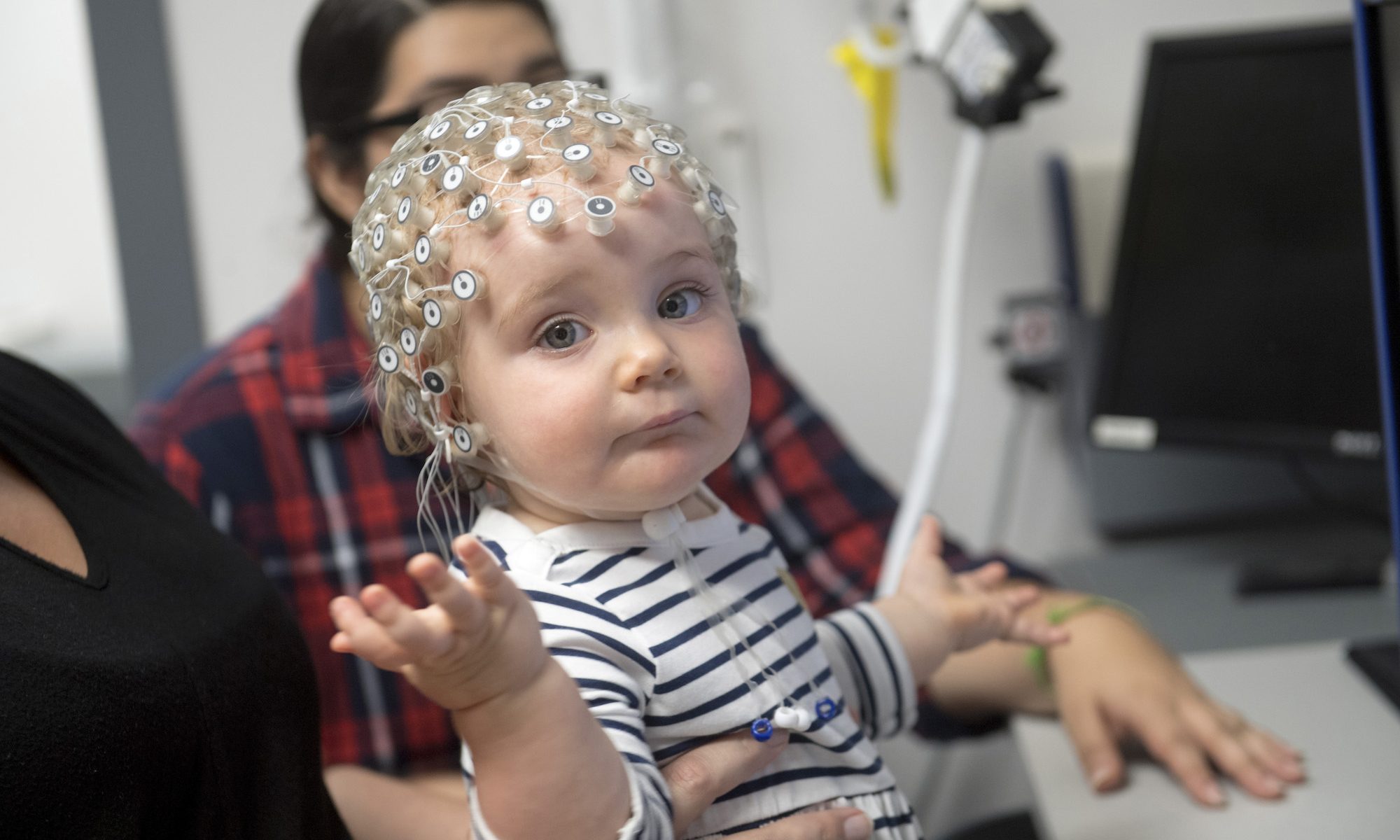New study shows that certain books can increase infant learning.
Parents and pediatricians know that reading to infants is a good thing, but new research shows reading books that clearly name and label people and objects is even better.
“When parents label people or characters with names, infants learn quite a bit,” says Lisa Scott, UF psychology professor, who co-authored the study published in Child Development with graduate student Arjun Iyer. Parents brought their babies to Scott’s Brain, Cognition, and Development Lab twice: once at six months old and again at age nine months. While in the lab, eye-tracking and electroencephalogram, or EEG, methods were used to measure attention and learning at both ages.
In between visits, parents were asked to read with their infants at home according to a schedule that included 10 minutes of parent–infant shared book reading every day for the first two weeks, every other day for the second two weeks and then continued to decrease until infants returned at nine months. Twenty-three families were randomly assigned storybooks. One set contained individual-level names, and the other contained category-level labels. Both sets of books were identical except for the labeling.
The individual-level books clearly identified and labeled all of the eight individuals, with names such as “Jamar,” “Boris,” and “Fiona.” The category-level books included two made-up labels (“hitchel,” “wadgen”) for all images. The infants whose parents read the individual-level names spent more time focusing on and paying attention to the images, and their brain activity clearly differentiated the individual characters after book reading. This was not found in either group at six months.
Scott has been studying how the specificity of labels affects infant learning and brain development since 2006. This study is the third in a series and was sponsored by the National Science Foundation. The harmless eye-tracking and EEG results are consistent with her other studies showing that name specificity improves cognition in infants.
Says Scott, “Books with individual-level names may lead parents to talk to infants more, which is particularly important for the first year of life.”
To support the people, program, or research featured in this story, please visit
